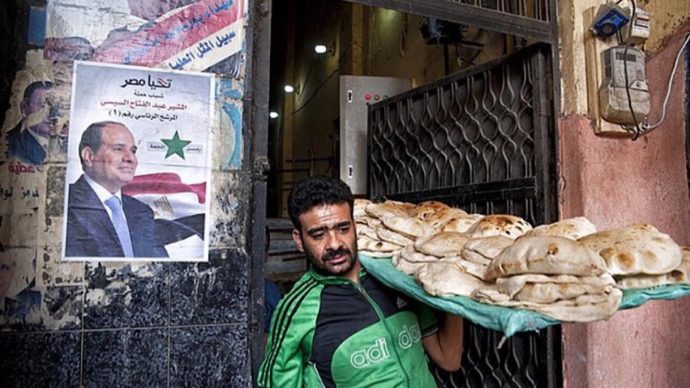ROME/CAIRO, 10 February, 2016 (WFP): The Egyptian Government has presented a national strategy to expand its school-feeding activities during a School Feeding side event organized alongside an Executive Board meeting of the United Nations World Food Programme (WFP).
WFP in Egypt has been supporting the National School Feeding Programme (NSFP) since 1968 and is currently reaching 636,000 children with its in-school fortified date bar snacks.
The Egyptian delegation at the board meeting in Rome on Tuesday presented its plan to further expand the NSFP so as to reach all government-funded schools. WFP’s strong partnership with the Egyptian Government is crucial in supporting this expansion, as the continuing working relationship between WFP and its government counterparts has been a best practice that ensured expansion of the programme and scale-up of operations.
The Ministry of Social Solidarity developed the strategy, in coordination with the Ministries of Education, Health and Population, Agriculture and Land Reclamation and key stakeholders.
Skal forbedre børnenes kognitive evner
“The Government considers school feeding as one of the mechanisms that complements the development of social protection in Egypt from an equity-based approach,” said Minister of Social Solidarity Ghada Wali.
“School feeding provides children with a nutritional meal that responds to the nutritional needs of school children, improves their cognitive capacities, and also eases some of the financial burden on their families,” she added. “The government is exerting efforts to alleviate poverty and to eventually contribute to social and economic development.”
The importance of school feeding has also been stressed by Egyptian President Abdel Fattah El Sisi, who has announced that a national school feeding strategy is a current priority on the State’s agenda.
Dadelbarrer beriget med vitaminer
“We are working very closely with the Egyptian Government in targeting the communities most in need in Egypt with our school-feeding activities. The date bars that WFP provides to the children in schools are fortified with vitamins and minerals that provide 25 percent of the child’s daily nutritional needs,” said Menghestab Haile, WFP Acting Country Director in Egypt.
“The in-school snacks also act as an incentive for families to enroll their children in the schools,” added Haile.
The objective of the expanded NSFP is to eventually cover all government schools, acting as both a safety net and as a sustainable investment in human capital, thus fitting into Government’s efforts to achieve ‘Education for all.’
It will also contribute to the Egyptian Government’s work towards meeting the Sustainable Development Goals (SDG), signed during meetings of the United Nations last September. SDG2 focuses on eliminating hunger and achieving food security by 2030.
“The Egyptian strategy on school feeding is aligned with the 2030 agenda, in particular SDG2 on ending hunger, achieving food security and improving nutrition. The current (Government) programme covers 13.5 million students with total government finances of 957 million Egyptian pounds,” said Assistant Foreign Minister for Multilateral Affairs and International Security, Ambassador Hisham Badr.
The European Union is one of the major contributors, along with the United States, Germany, and private-sector members, to school-feeding programmes in Egypt.















